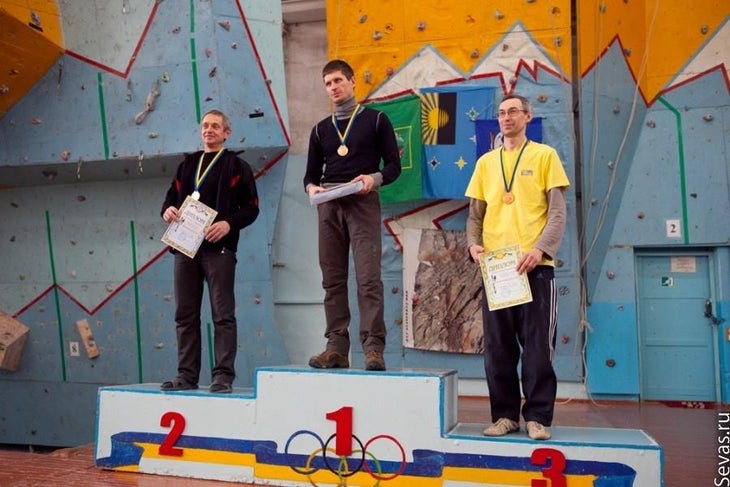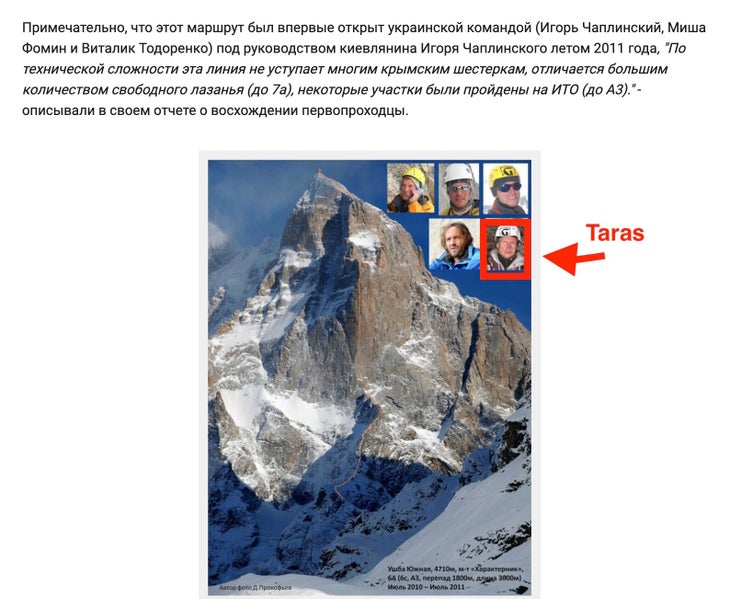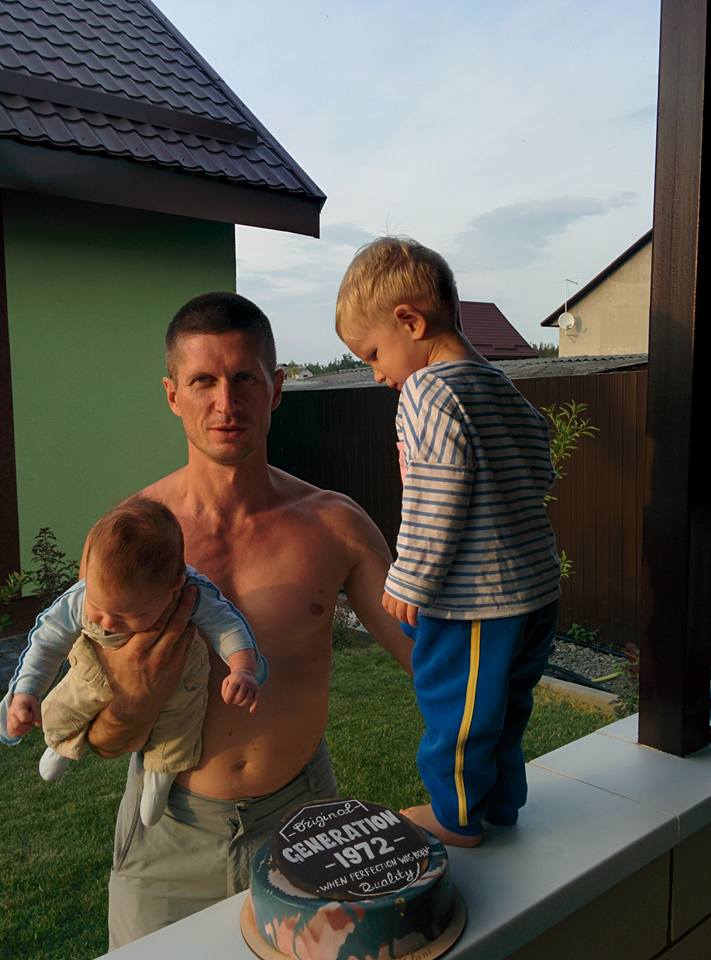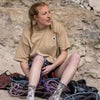Heading out the door? Read this article on the new Outside+ app available now on iOS devices for members! Download the app.
Taras Pona was a fierce Ukrainian patriot and an avid mountaineer. He is remembered for his bravery and his hopes for a free, progressive future. He died at the age of 50 on October 21 near Bachmut, in the Donetsk region, after a sniper’s bullet pierced between the plates of his body armor.
Pona was born in the village of Zvenigorodka, in central Ukraine. Throughout his life, he was a passionate proponent of his country’s culture. He listened to Ukrainian singers and he conversed in his native language. Pona was even injured by a police officer during the 2014 Maidan Revolution, or the Revolution of Dignity, which saw Ukrainians taking to the streets to protest then-president Viktor Yanukovych’s decision to not more closely align the country with the EU and to call out the government’s widespread corruption and human rights violations.

Prior to the invasion, Pona worked as a major at the National Anti-Corruption Bureau of Ukraine (NABU), a law enforcement anti-corruption agency established in 2014 as one of the requirements set by the International Monetary Fund and the European Commission for fewer visa restrictions between Ukraine and the EU. NABU functions as an investigative body for government corruption. In his spare time—particularly prior to 2014—Pona frequented the gym to train for both indoor competitions and mountaineering objectives. With Ukrainian climber Mishel Voloshanovskyi, Pona established the first six pitches of Characteristic, a technical 1,500-meter route up Ushba Peak in 2010. Ushba is well-known for its dangerous and complex terrain, and when the line was completed by four fellow Ukrainians a year later, Mikhail Fomin, one of the first ascentionist, described it as “one of the best access routes to one of the most beautiful peaks in the world.”

Pona also traveled across Ukraine to compete in local indoor competitions, often taking first place. His friends nicknamed him “Cyborg” for his tenacity and strength.
In addition to climbing, Pona enjoyed swimming, morning runs, going to the shooting range, reading books, and riding his motorcycle. In the evening, he loved to watch movies with his wife, Kateryna, and his three children Tymur, Artur, and Iryna.
“Father was a very sociable person—there was always something to talk about with him,” says Iryna. “You could ask him a question on any topic and get an answer.” She remembers accompanying her father to visit friends and ride horses. She enjoyed riding on the handlebars of her dad’s bike—even though he had a car, he preferred to cycle. On weekends, she went with him to climbing competitions, where she often competed as well.

“I was never sad with him. He could easily cheer up the mood and find cool locations where you can spend time,” she says.
In the first days of the invasion, he joined front line volunteers in Donetsk and Luhansk. Throughout the war, he was moved to hot spots, where help was most needed. Pona spent the last months of his life in Bakhmut, a city in Eastern Ukraine and the scene of one of the bloodiest and most prolonged battles of the war to date.
“It can be said that there is nothing left of this city, only ruins and the lost lives of the Ukrainian people and soldiers who wanted to live peacefully on their territory,” says Iryna.
Pona was a leader, drawing on his experience fighting the 2014 war in Donetsk and from his studies in America with the U.S. military, to teach the soldiers under his command to assess danger and handle weapons.
Pona is survived by his three children, his wife, and his mother. Iryna wrote: “It was important for him to protect our borders and the future of his children. He lived with the thought that this was his duty.”
